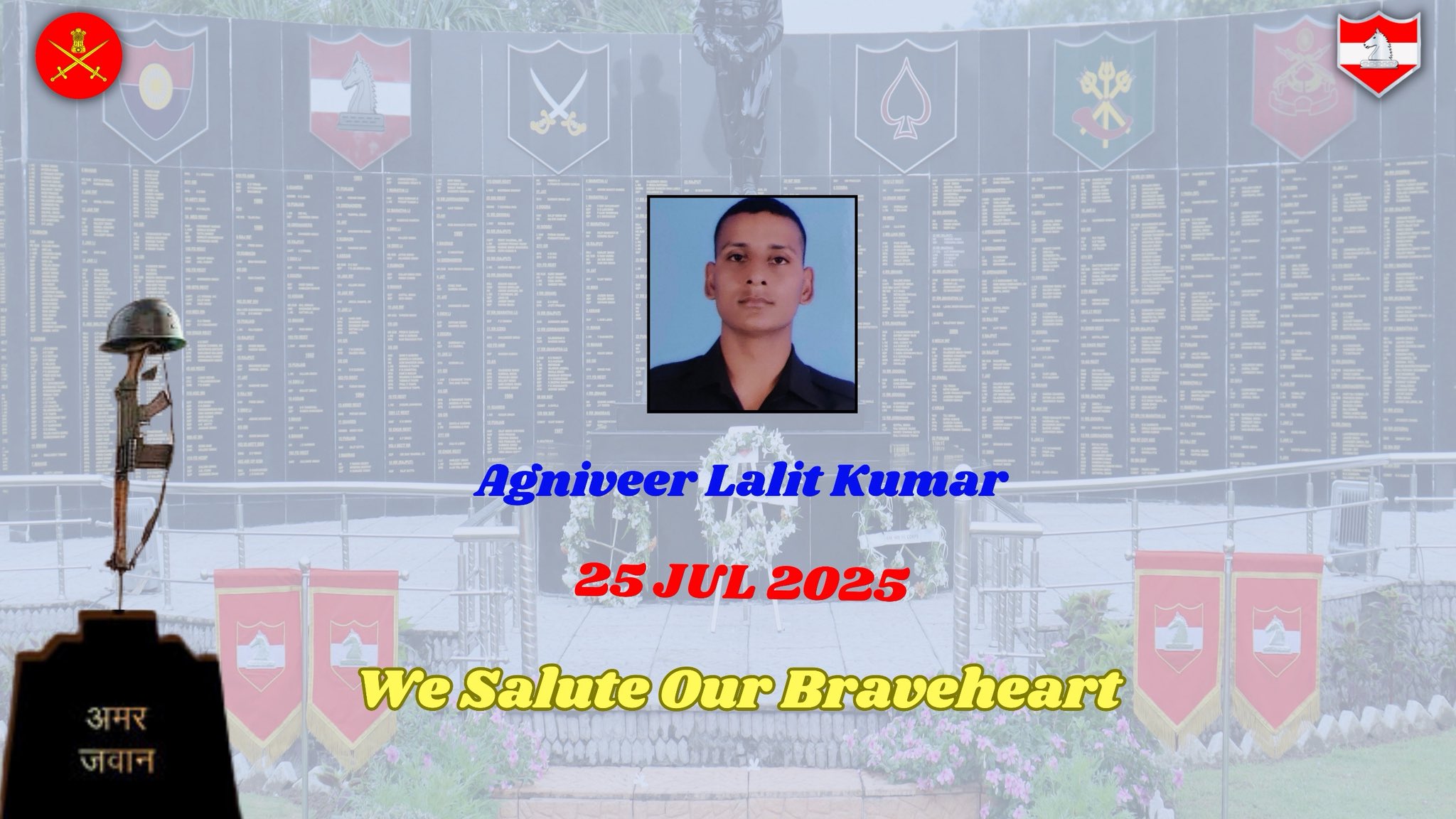Jammu & Kashmir – The Poonch Landmine Blast has claimed the life of an Agniveer and left two other soldiers injured in a tragic incident that occurred in the Krishna Ghati sector of Poonch district on Friday, July 25, 2025. This devastating explosion has once again highlighted the dangerous conditions under which Indian Army personnel operate in the border regions, where the threat of unexploded ordnance remains a constant concern for military forces conducting routine operations.
The Poonch Landmine Blast represents another somber reminder of the sacrifices made by India’s armed forces in maintaining security along the nation’s borders. The incident has sent shockwaves through the military community and underscored the inherent risks faced by soldiers during their daily duties in conflict-prone areas.
Details of the Fatal Incident

According to official sources, the Poonch Landmine Blast occurred when an Army patrol team was conducting routine area domination operations near their forward post in the Krishna Ghati sector. The soldiers were performing their regular duties, which are essential for maintaining security and surveillance in this strategically important border region.
During the patrol, the tragic Poonch Landmine Blast happened when soldiers accidentally stepped on an explosive device that had been planted in the area. The sudden detonation resulted in immediate casualties, with one soldier making the ultimate sacrifice while two others sustained injuries of varying severity.
The Poonch Landmine Blast demonstrates the unpredictable nature of such explosive devices and the constant vigilance required by military personnel operating in areas where such threats are prevalent. Despite extensive training and precautionary measures, accidents involving unexploded ordnance continue to pose significant risks to armed forces personnel.
Victim Identification and Military Background

The Poonch Landmine Blast claimed the life of Agniveer Lalit Kumar, who was serving with the 7 JAT Regiment at the time of the incident. As an Agniveer, Kumar represented the new generation of military personnel recruited under the Agnipath scheme, which aims to bring young and motivated individuals into the armed forces for short-term service while maintaining high standards of training and dedication.


Agniveer Lalit Kumar’s death in the Poonch Landmine Blast has highlighted the courage and commitment of these young soldiers who willingly put themselves in harm’s way to protect the nation’s borders. His service with the 7 JAT Regiment, a distinguished unit with a proud history of service, exemplifies the dedication shown by personnel across all ranks of the Indian Army.
The loss of Agniveer Kumar in the Poonch Landmine Blast represents not only a personal tragedy for his family but also a significant loss for his regiment and the broader military community that valued his service and dedication.
Official Military Response and Tribute
The Army’s White Knight Corps has officially responded to the Poonch Landmine Blast by paying solemn tribute to the fallen soldier. In a formal statement posted on social media platform X, the Corps acknowledged the supreme sacrifice made by Agniveer Lalit Kumar during his service to the nation.
The White Knight Corps’ response to the Poonch Landmine Blast emphasized that “all ranks pay solemn tribute to Agniveer Lalit Kumar of 7 JAT Regiment, who made the supreme sacrifice, while on an area domination patrol in general area of Krishna Ghati brigade on 25 July 2025, following a mine blast.”
Also Read: Cambodia Thailand War: Deadly Border Clashes Kill 12 In Escalating Crisis
This official recognition of the Poonch Landmine Blast victim demonstrates the military’s commitment to honoring those who have made the ultimate sacrifice in service of their country. The Corps also expressed solidarity with the bereaved family, stating that they “stand with the bereaved family in this hour of grief.”
Strategic Importance of Krishna Ghati Sector


The Poonch Landmine Blast occurred in the Krishna Ghati sector, which holds significant strategic importance in the overall security framework of the region. This area requires constant patrolling and surveillance to maintain security along the border, making it essential for military personnel to conduct regular area domination operations despite the inherent risks.
The Krishna Ghati sector, where the Poonch Landmine Blast took place, has historically been an area of tactical importance, requiring sustained military presence and vigilance. The challenging terrain and security situation in this region make routine patrols both necessary and dangerous for the personnel stationed there.
Operations in areas like Krishna Ghati, where the Poonch Landmine Blast occurred, are crucial for maintaining border security and preventing infiltration attempts. However, these operations also expose military personnel to various threats, including improvised explosive devices and landmines.
Impact on Military Operations
The Poonch Landmine Blast will likely prompt a review of safety protocols and procedures for patrol operations in the region. Military authorities typically conduct thorough investigations following such incidents to identify any procedural improvements that could enhance soldier safety during future operations.
Following the Poonch Landmine Blast, there may be increased emphasis on mine detection and clearance operations in the area to prevent similar incidents. The Army often implements additional safety measures and enhanced training protocols in response to such tragic events.
The Poonch Landmine Blast serves as a stark reminder of the ongoing security challenges faced by Indian Armed Forces in border regions. It underscores the need for continued vigilance, improved safety equipment, and comprehensive training to minimize risks to personnel conducting essential security operations.
Broader Security Implications
The Poonch Landmine Blast occurs within the context of ongoing security challenges in the region, where military forces must maintain constant readiness while managing various threats. Such incidents highlight the complex security environment in which Indian Army personnel operate daily.
The tragic Poonch Landmine Blast reinforces the importance of supporting families of military personnel and ensuring adequate compensation and assistance for those who have made sacrifices in service of the nation.


